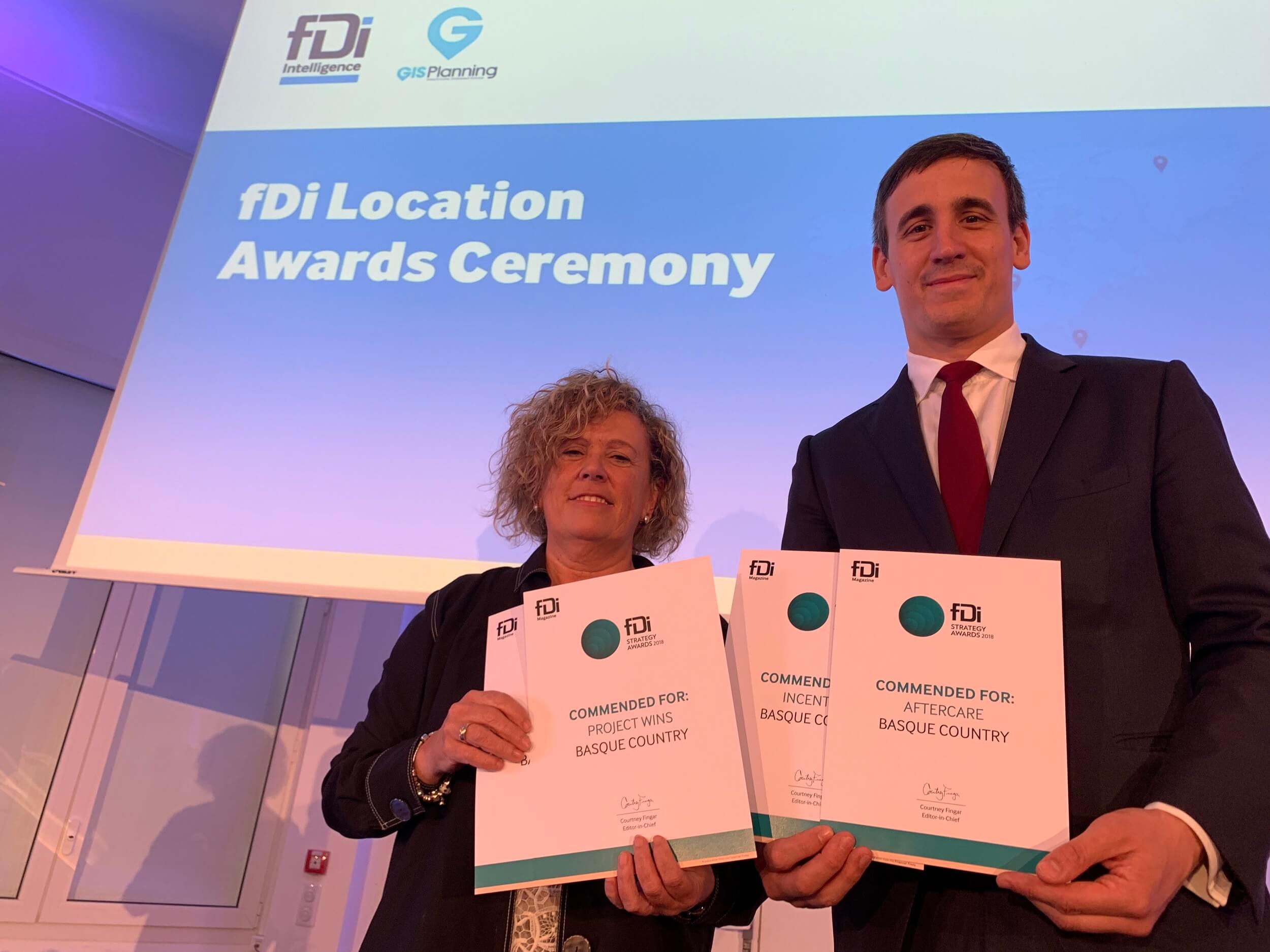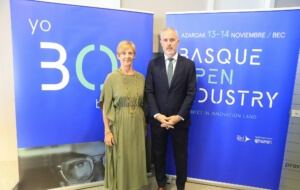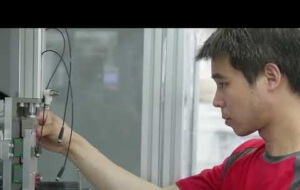

Four aspects of the Invest in the Basque Country strategy of the SPRI Group and the Basque Government have received awards
Alex Arriola, SPRI Group General Manager, today collected the award given in Cannes by the fDi Intelligence Magazine, part of the Financial Times Group, recognising once again that the Basque Country is an attractive territory for foreign investment. On this occasion, four aspects of the Invest in the Basque Country strategy of the SPRI Group and the Basque Government have received awards. More specifically, these are support for established companies, the public-private Bind 4.0 acceleration programme for start-ups, the incentive systems, and one of the projects for attracting foreign investment into the Basque Country, like that of the American company Viralgen.
This is the third consecutive time that this prestigious specialised publication has recognised the efforts of “Invest in the Basque Country”. Last year, it placed the Basque Country among the 10 most attractive European regions in Southern Europe for foreign investment and recognised the “Invest in the Basque Country” foreign investment attraction strategy as one of the 10 best of the medium-sized regions in all Europe. Two years ago, the Financial Times ranked the Basque Country as the sixth best European region for foreign investment and highlighted the Basque Country as the medium-sized region that offers the best logistics.
Like this, the Basque Country has been recognised by the fDi Magazine, which specialises in market positioning and international investment flows, from among 112 worldwide locations. As indicated, the report on the Strategy Awards highlights the Basque Country for its “Aftercare” support strategy for foreign capital companies already installed in the Basque Country, in its strategy aimed at SMEs and start-ups, of which the Bind 4.0 programme stands out, in incentives for setting up, and in the section of high interest projects achieved, such as the largest gene therapy production centre in Europe with the American capital company, Viralgen.
Support for foreign capital companies already established in the Basque Country, the so-called Aftercare strategy, aims to keep the decision centres of these companies in the Basque Country, which involves intense efforts by the SPRI Group’s “Invest in the Basque Country” team, with regular visits to these companies to find out their needs, gain their loyalty through greater collaboration with the ecosystem and participation in R&D projects and, ultimately, to avoid any possible relocations.
In the Basque Country, there are currently over 1,000 companies with foreign capital that have more than 10 employees, representing 10% of the total companies and providing more than 52,000 jobs. Industry brings together almost 46% of the foreign investment companies and their average size is bigger than the average. In 2015, these companies contributed more than 13% to the GDP and represented 9.9% of employment in the 2008-2015 period.
On the other hand, the Basque industrial policy has a special impact on SMEs and the creation of start-ups. Therefore, the Bind 4.0 acceleration programme, launched by the Basque Government three years ago and run by SPRI, has been awarded as a project of interest for its impact also on attracting foreign investment. Proof of this is that in the last edition, it received 524 applications from 64 different countries. These applications have been analysed by 40 Basque driver companies, which have selected 32 start-ups, with which a total of 44 projects will be developed. Of these 32 companies, 13 are from outside the Basque Country and 5 of them are foreign.
The report also highlighted the incentives system for developing investments and, above all, the achievement of R&D projects in the Basque Country. This incentives system, in which taxability must also be included, is the same as that offered to Basque companies and is extremely attractive for foreign capital companies wishing to set up in the Basque Country.
 19 September, 2024 Digitalisation
19 September, 2024 Digitalisation 27 September, 2023 Digitalisation
27 September, 2023 Digitalisation 5 October, 2021 Digitalisation
5 October, 2021 Digitalisation 5 October, 2021 Digitalisation
5 October, 2021 Digitalisation 1 October, 2021 Digitalisation
1 October, 2021 DigitalisationFor SMEs, for diversifying markets, internships abroad, international tenders, non-reimbursable subsidies to consolidate exports, subsidies for deployments or specific training in internationalisation.
You’re interested, right?